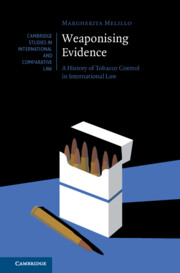This article explores the phenomenon of ‘disaggregation’ of disputes in international law, that is, the carving up of broader disputes into discrete legal claims based on different international legal rules and subject to the jurisdiction of different international tribunals. In particular, its focus is on certain under-explored consequences of this phenomenon for the jurisdiction of international tribunals, asking whether the relationship between the specific claims and the broader dispute might affect the jurisdiction of the tribunals. Employing the ongoing Ukraine/Russia dispute, which has yielded multiple claims before different international tribunals, the article offers an original analysis of these jurisdictional questions. It presents three approaches discernible from case law where tribunals face claims over which they appear to have jurisdiction that implicate a broader dispute over which they do not. The article ends with a consideration of possible explanations for why a tribunal might follow one approach over the others in any given case.


